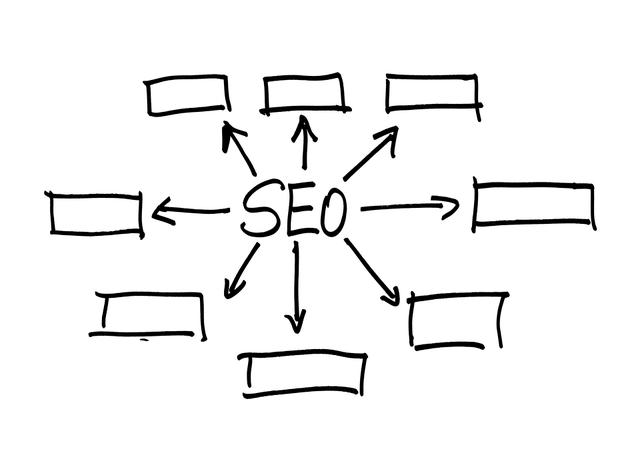Search Engine Optimization (SEO) is a powerful tool for online businesses and content creators, aiming to drive organic traffic through improved search engine rankings. Its key benefits include attracting target audiences, building credibility, enhancing user experience, outranking rivals, and increasing conversion rates. SEO boosts website visibility, attracts genuinely interested visitors by matching search queries with site content, and offers long-term sustainability compared to paid advertising. Effective SEO strategies involve understanding user search behavior, optimizing content for both users and engines, improving page performance, building quality backlinks, and regular analysis using tools like Google Analytics and Search Console. Staying ahead in SEO is crucial through algorithm updates and new trends like voice search optimization.
In today’s digital landscape, understanding the benefits of Search Engine Optimization (SEO) is paramount for online success. This powerful tool drives organic traffic to your website by enhancing its visibility on search engines like Google. From boosting keyword rankings and attracting relevant visitors to fostering long-term business growth, SEO offers a myriad of advantages. This article delves into the core strategies—on-page and off-page techniques—and highlights the importance of staying current with SEO trends to unlock these benefits of Search Engine Optimization and thrive in an ever-evolving online realm.
Understanding Search Engine Optimization (SEO) and its Role in Traffic Generation

Search Engine Optimization (SEO) is a powerful tool for driving organic traffic to your website, and in today’s digital landscape, it’s an essential strategy for any online business or content creator. At its core, SEO involves understanding how search engines work and optimizing your website and content to rank higher in search results. By leveraging the right keywords, creating high-quality content, and ensuring your site is technically sound, you can significantly enhance your online visibility.
The benefits of SEO are vast and long-lasting. It attracts target audiences who are actively searching for products or services related to your offerings, leading to higher conversion rates. Well-optimized websites also build credibility and trust with visitors, fostering a positive user experience that encourages longer sessions and repeat visits. Moreover, effective SEO strategies can provide a competitive edge by outranking rivals, ultimately driving more qualified leads and sales.
The Direct Benefits of SEO for Your Website's Visibility

Search Engine Optimization (SEO) is a powerful tool that directly enhances your website’s visibility in search engine results pages (SERPs). When you optimize your website for SEO, it becomes more likely to appear higher in search rankings, driving increased organic traffic. Higher rankings mean more exposure to potential customers who are actively searching for products or services related to what you offer.
The direct benefits of SEO extend beyond just higher placements. It also improves the quality of your website’s visitors. Because SEO focuses on creating relevant and valuable content that satisfies user search intent, it attracts visitors who are genuinely interested in what your site offers. This leads to longer visit durations, lower bounce rates, and ultimately, better conversion rates.
How SEO Attracts Relevant Organic Traffic to Your Site

Search Engine Optimization (SEO) is a powerful tool for driving organic traffic to your website. By understanding and utilizing the benefits of SEO, businesses can attract their target audience more effectively. The primary advantage lies in its ability to match relevant search queries with your site’s content, ensuring that only interested visitors find their way to you. When optimized correctly, keywords and phrases become gateways, drawing in folks who are genuinely seeking what you offer.
This strategic approach goes beyond mere visibility; it involves crafting content that resonates with users’ intent. SEO encourages creating valuable resources that address common queries, thereby positioning your site as an authority in your niche. As a result, organic traffic grows organically, with visitors staying longer and engaging more frequently due to the relevance and quality of your content.
Boosting Keyword Rankings: A Crucial Aspect of SEO Strategy

In the realm of digital marketing, boosting keyword rankings is a pivotal strategy within the broader framework of Search Engine Optimization (SEO). By optimizing web content for relevant keywords, businesses can significantly enhance their online visibility and attract organic traffic. When search engines like Google crawl and index websites, they analyze the relevance of content based on these keywords, ranking higher those that align with user search intent. This process offers numerous benefits, including increased website credibility and authority within specific niches, ultimately driving more qualified leads.
A robust SEO strategy focuses on understanding target audiences’ search behavior and incorporating relevant keywords naturally into web pages. Well-optimized content not only satisfies search engine algorithms but also provides a seamless user experience. As a result, websites rank higher in search results, leading to more click-throughs and potential customers. This organic growth is particularly valuable as it fosters long-term sustainability, unlike paid advertising that requires continuous investment.
The Long-Term Impact of SEO on Business Growth

Search Engine Optimization (SEO) is not just a fleeting trend but a strategic investment for long-term business growth. The benefits extend far beyond driving immediate traffic; it establishes a robust online presence that acts as a reliable foundation for any company in the digital landscape. By optimizing content, websites become more visible and credible in search engine results, leading to increased organic traffic over time. This consistent flow of targeted visitors is invaluable, fostering brand awareness and building a loyal customer base.
Moreover, SEO empowers businesses to understand their target audience better. Through keyword research and analytics, companies can tailor their content to meet specific needs and preferences. This level of precision marketing ensures that every interaction with potential customers is meaningful and relevant, enhancing conversion rates and contributing to sustained business growth. The long-term payoff includes improved online authority, increased market share, and a competitive edge in an ever-evolving digital environment.
Effective On-Page SEO Techniques to Enhance User Experience

Implementing effective on-page SEO techniques is a strategic approach to enhancing user experience and, consequently, boosting your website’s visibility in search engine results. One key aspect is optimizing content for both users and search engines by incorporating relevant keywords naturally into headings, subheadings, meta descriptions, and throughout the body text. This ensures that your web pages align with search intent, providing valuable information that satisfies visitors’ queries.
Additionally, improving page load speed and ensuring mobile responsiveness are vital for a positive user experience. Search engines favor sites that offer fast loading times and a seamless experience across various devices. Optimizing images, minimizing HTTP requests, and leveraging browser caching can significantly enhance page performance. These techniques not only contribute to better SEO but also encourage visitors to explore more pages, reducing bounce rates and increasing time spent on site—all factors that search engines consider when ranking websites.
Off-Page SEO Strategies for Building Quality Backlinks

Off-page SEO involves strategies that take place outside your website but significantly impact its ranking on search engines. One of the most crucial aspects is building quality backlinks, which are incoming links from other websites. These backlinks serve as votes of confidence for your site in the eyes of search engines, indicating its authority and relevance. Earning high-quality backlinks can enhance your website’s credibility and visibility, ultimately driving organic traffic.
Effective off-page SEO strategies include guest blogging on reputable sites, where you contribute valuable content while including a link back to your own website. Another powerful method is to engage in influencer outreach, which involves building relationships with industry influencers who can promote your brand or content, thereby increasing your online exposure and generating backlinks. Additionally, social media engagement plays a vital role by enabling you to share your content and interact with potential customers, which can lead to organic backlinks as users share your material on their platforms.
Measuring and Analyzing SEO Performance: Tools and Metrics

Measuring and analyzing SEO performance is an integral part of understanding the benefits of Search Engine Optimization (SEO). It involves keeping a close eye on various metrics to assess how well your website is ranking, gaining visibility, and attracting organic traffic. There are numerous tools available that can help you in this process.
Google Analytics is one such powerful tool that provides insights into user behavior, including the keywords they use to find your site, their bounce rate, time spent on pages, and conversion rates. Additionally, Google Search Console offers detailed information about how your website appears in search results, helping you identify technical issues and track backlinks. Other useful metrics include page views, unique visitors, average session duration, and click-through rates (CTRs) from organic search results. By regularly monitoring these tools, you can make data-driven decisions to optimize your content and improve your site’s overall SEO performance.
Staying Updated with SEO Trends to Maintain High Rankings

Staying abreast of SEO trends is paramount for any website aiming to maintain or improve its search engine rankings. The world of Search Engine Optimization is constantly evolving, with algorithms updating and new best practices emerging regularly. What worked a few years ago may no longer be effective today. For instance, voice search optimization has become a significant focus, as more people use digital assistants, requiring content to be tailored for conversational queries.
By staying current with these trends, businesses can capitalize on the ever-changing landscape of SEO. This includes understanding mobile-first indexing, which means ensuring your website is optimized for mobile devices, as most users now access the internet via smartphones and tablets. Additionally, high-quality content remains a cornerstone of successful SEO strategies. Regularly updating and enhancing your site’s content with relevant keywords, engaging meta descriptions, and valuable information will not only attract more visitors but also encourage longer browsing sessions, ultimately driving higher rankings and increased organic traffic.
